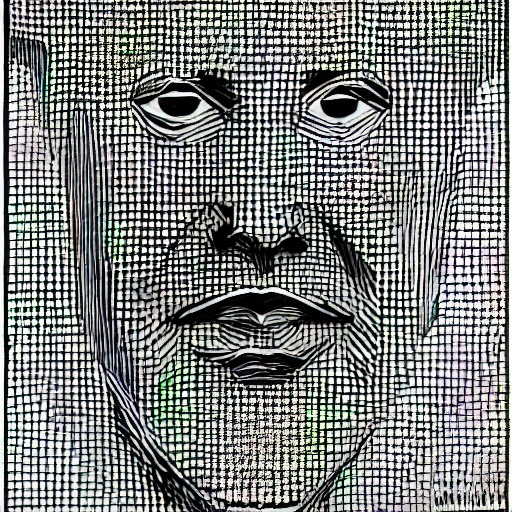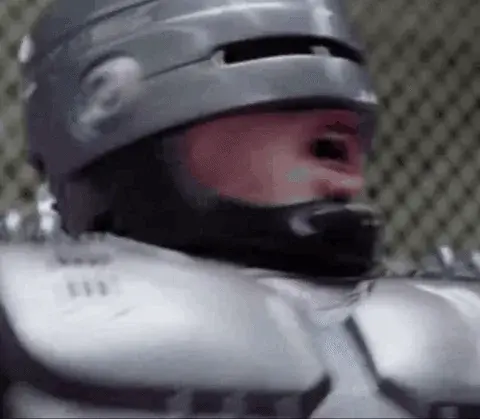I just think about what moves they may make from what I can physically see. It works well enough but I’m not good at chess. That’s most likely my ADHD working against me though not the aphantasia. Maybe both lol.
Speaking of ADHD, I’ve been into chess lately and have found it to be a really good way to practice extending my focus and not taking mental shortcuts, like I’m prone to do.
A friend of mine has aphantasia. It seems like she has trouble with some board games but not with others. If she can stare st the layout of the board she’s usually fine. We’ve never played chess.
In addition to not being able to see anything in her head, she also cannot hear her own thoughts.
That last part is particularly interesting… So maybe it’s not just visual reasoning.
I think most aphantasiacs can’t hear their own thoughts, but I might be wrong.
She’s like the Helen Keller of thinking
Aphantasia is a condition that prevents people from creating mental imagery . It is rare, affecting only about 4% of the global population… My visual memory is like looking through a frosted window. I see some colors and blobby shape and that’s about it.
I don’t see things in my head, it’s still blank but i can imagine the concepts. Do i have aphantasia? My dreams are vivid tho
I have total aphantasia and am exactly the same.
Aphantasia is not actually a real condition btw, the whole “imagine an apple” discourse is completely lacking in rigor. It’s like the online ADHD discourse, or MENSA. It’s a way for boring people to talk about themselves to each other. (Like most of Reddit and Wikipedia.)
Says who?
We got a no-apple-seer over here
No, everyone can imagine an apple. This is stupid. Even this guy admitted he can remember things, he’s just not satisfied with the quality. A cup of coffee would make him see an apple.
Lol wtf are you on about. It’s realistic to you that people can have PTSD, hyperphantasia, photographic memory, schizophrenia, bipolar, blindness/deafness, multiple sclerosis, and all these other otherworldy experiences which most people wouldn’t believe without being educated on it, but not realistic that a portion of people have deficient or non-existent mental imagery? Or even that a portion of people have ADHD?
I seriously doubt that you know better than neuroscience&psychology researchers and people who have the disorder but alright.
Also aphantasia isn’t “no remember thingies”. Memory is complex and it isn’t reliant on your ability to project images into your vision.
I have never been able to actually mentally visualize something, I always thought “imagine being in your happy place” was a metaphor and not that you’re actually supposed to visualize a place. I have always took “visualize” to mean not literally putting it in your vision, but just thinking about the fact of a situation. The closest I have to actually being able to picture an image/object is dreams and sleep paralysis hallucinations lol. No amount of caffeine or concerta could possibly change that. You’re crazy if you think because you can’t imagine it that there’s a conspiracy of “so-called aphantasiacs and medical researchers” who are lying about the existence of lacking mental imagery.
I’m curious as to where you allegedly saw aphantasia being “debunked” because all there seems to be is crazies on internet forums (specifically, Reddit and ycombinator) who notably aren’t psychology researchers, have no qualifications regarding the matter, and are just random people who want to feel like they cracked the code. Often times it’s people who have never been able to visualize who think their deficiency of mental imagery is the norm and that most other people have never been able to visualize either.
I’m also curious as to whether you think developmental/congenital prosopagnosia is fake or if it’s just a phase like you think aphantasia is.
“Neuroscience researchers” but you don’t post a source, just an essay on how invested you are in this being real. Keep huffing that Quanta magazine, buddy. MBTI testing is also horseshit. I didn’t see it “debunked” on Hacker News and Reddit, those are the #1 aphantasia and ADHD havers in the entire world. It’s hilarious you think something less rigorous than IQ testing is on the same level as PTSD
“Neuroscience researchers” but you don’t post a source, just an essay on how invested you are in this being real.
These are by Rebecca Keogh (and others), an actual cognitive neuroscience specialist/psychology researcher who has a PhD from one of the most well-regarded universities in Australia. Here they establish that there is real evidence that aphantasiacs lack mental imagery, and finds that there is no evidence backing the claim that “aphantasiacs have mental imagery”. Keogh also has some works that delve deeper into mental imagery and how it’s a spectrum, including aphantasiacs and hyperphantasiacs.
Here’s Cleveland Clinic casually affirming its existence too.
I shouldn’t even have to give sources because I’m not the one claiming an abnormality in visual imagery is fake but here you go anyways.
It literally comes up immediately when you search for aphantasia research. You clearly have not even tried to find research on aphantasia. Now where are your sources? I notice you didn’t link any, at all.
MBTI testing is also horseshit.
??? Where in the god damn fuck did I mention MBTI or personality tests in general in my original comment?
I didn’t see it “debunked” on Hacker News and Reddit, those are the #1 aphantasia and ADHD havers in the entire world.
And yet you don’t mention where you “saw it debunked”, just stating that you totally did bro.
It’s hilarious you think something less rigorous than IQ testing is on the same level as PTSD
Again, you are being crazy, you are quite literally making up arguments to attack out of your ass.
I don’t know why you decided this is the hill for you to die on despite you clearly having no idea of what you’re talking about and most respected psychology & neuroscience/cognition researchers who have tackled the subject clearly not being aligned with your views on the matter at all, and what makes you think you have any authority to just call a scientifically measured and agreed-to -exist phenomenon fake, but go ahead and have a tantrum and pretend you know anything about the subject I guess.
If you respond with internet magazines or a shitty YouTube video essay as your source I’m gonna laugh myself to asphyxiation
Psychology Today has done a number on you, what a frantically googling moron, the first study has N=15, it’s entirely based on self-diagnosis and surveys. They want to come up with a neurological basis for it based off fifteen people self-reporting fuck off lmfao.
Oh wow she has a PHD??? We have to listen to her obviously. I hate pseuds and their credentialism hahahaha you’re full of it
Can’t wait to see the second one.
This is like when my sister decided she was a super taster and that cilantro tastes like soap.
I never said I was particularly impressed with the rigor of ALL NEUROSCIENTISTS, they are as bad as physicists involved with string theory. Unfalsifiable nonsense. This is the kind of shit I’m talking about when I trash the entire field of “smart science” that’s been picked up by TPOT and Lesswrong and other pseuds.
saw it debunked
Oh you want me to prove aphantasia isn’t real lol, no wonder you have trouble with things like this where people play word games, you’re completely devoid of logic. The onus is on you, and neuroscientists, to prove it exists.
What you did is go pull every paper you could possibly find which reinforces your identity.
I just witnessed a murder lol
Does Aphantasia also cause the development of superhuman levels of patience? Because my dude, i don’t know how you managed to entertain this troll for as long as you have. This whole thread was highly entertaining though, so thanks for that, lol.
(I know it goes deeper but i didn’t want to bury my comment that far down)
If there is anything keeping people from having solid visualizations throughout the day, it’s not sleeping enough. It’s a night-and day difference in mental imagery. None of these studies control for anything like that or sleep, which really just shows you how hard they are fishing for something which isn’t there. A lot of sleep issues are totally incurable without switching to back sleeping, getting rid of lint (people refuse to do this), and eliminating a sedentary lifestyle. Now if you tried to do studies on people like that you wouldn’t be able to find any. But I can tell you I’ve experienced “aphantasia” and it’s cured by getting a good night’s sleep. A lot of people never get a good night’s sleep ever.
This is the problem with the I Fucking Love Science crowd, your fun facts quickly turn into barrages of narcissistic gibberish whenever someone doesn’t give you validation. There’s no rigor, there’s no questioning, there’s no meta-analysis.
Just TRUST THE SCIENTISTS, LOOK AT THE STUDIESESS nevermind whether they’re any good. Go post about the Stanford Prison Experiment or something you irritating pseud.
You’re such an angry little so-and-so. Why do you care about what doesn’t concern you. Silly.
Imagining does not equal having a mental image. I see nothing when I close my eyes, even if I try to picture my child.
4% is a pretty big chunk of the population. That’s 1 in every 25 people. Which makes it all the more insane that nobody realised it existed as a condition until just a few years ago.
It really depends on how you define aphantasia. Often the VVIQ score is used, a vividness score ranging from 16 to 80.
About 0,8 % of people have a score of 16, and 3,9 % have a score <= 32. The figures are from one of the more recent studies. Other studies report similar figures, for example one study by Zeman found 0,7 % with a score of 16.
About ¼ of all people with visual aphantasia also have multisensory aphantasia (all classical senses and emotions).
I have all the senses, but not emotions. Didn’t know that was a thing!
It just doesn’t come up all that much. Folks live without knowing they are different.
And it is on a spectrum. Some folks is nothing others are can force a few pictures if they have to but aren’t clear. I dunno.
And then there’s the hyperphantastics. My friend can close her eyes and replay scenes in her mind like a movie! Blew my mind.
Downvoted for telling you how to dream more, stay salty!
This happens to me periodically and I seriously think it means we just need more potassium, less sleep disruption, and more time in nature to absorb green colors (soothing in memory, gives you good dreams) and exercise the eye muscles with long distance focus.
Absorb green colors haha. How many crystals should I carry while I do the absorption?
You do realize that when people are confined entirely to urban spaces they report having anxiety dreams about interior spaces?
Are you sheltered or something? Looking at verdant green spaces has been proven to have a positive psychological effect. You should wear crystals over your eyes if you are nearsighted to help. 👓 Aphantasia is just a difference in language games people use. It’s been debunked.
I found it very interesting to learn that they believe aphantasics can form the mental image, they just can’t access it. Minds are amazing!
Any mental imagery in general? Like through mind’s eye? Dreaming? I had a mind palace (like no joke) it took me years to build into something I could use, and I had a few seizures in relatively quick succession and I cannot imagine images with nearly the same clarity. My dreams are like trying to swim in molasses while wearing scuffed scratched glasses, and I haven’t been able to access my mind palace in years. Any time I close my eyes I just see vague blurry shapes and colors, there’s an environment there but I can’t see it. Now, I can still see faces and remember them, but imagining in my head kissing my girlfriend is impossible. Her face warps and melts and my mental vision goes fuzzy.
An article about it :- https://en.chessbase.com/post/aphantasia-in-chess
So like, I’ve heard about this for ages but I struggle understanding. I definitely cannot “see” anything when I close my eyes, I definitely cannot “see” anything in my mind/imagination. I can “picture” things but that picture is more or less an emotional feeling about the thing, I can imagine certain parts of it but it’s more or less a conversation with myself about what I would see or experience about the thing, as if I were describing something that I’m feeling while blindfolded.
When they say visualize something in your head, do people actually see something as if they were looking at it? Else I just figured that visualizing meant more or less an analogy of how we make sense of the actual experience.
It’s not as vivid as seeing it for real, or even dreaming of it. It’s more akin to how you can “hear” a song that’s stuck in your head.
See, now that’s the funny thing. I can totally listen to music in my head, vivid enough that I even unconsciously will start to bob my head or shoulders in time. I get goosebumps the same as I would for a song that’s actually playing.
Yes. Although some details might be wrong if my memory of it is lacking, i can quite literally picture an image of the thing i’m thinking of.
like people who don’t have it? Chess is strategy, not art, or engineering.
Chess is a series of strategic moves. You just make them. Are yall out here experiencing some kind of bizarre 5d chess i’ve never experienced before?
source - me, i have it.
TIL I have aphantasia
For those that don’t have aphantasia, can you do a mental face swap or do other “edits” of mental imagery and keep it consistent in your mind?
And for those that do have it, how does remembering pictures work for you? Like the Mona Lisa, or an MC Escher, or the last supper? Is any memory purely word-based or do you get flashes of imagery that aren’t really vivid but still there somewhere?
I ask because I’m not sure if I do or don’t have it. I can imagine audio much more vividly and rich than imagery, but I can still recall pictures and images as images. I can create them, but if I try to go into detail or make “edits”, I start losing it.
Reading this post has made me realise that I haven’t deliberately used visual imagination in a long time, and I’m finding it harder to do that sort of thing now.
I used to be practically limitless in my ability to recall imagery or change it at whim. Since then I’ve gotten years deep into a cycle of overwork, distraction based entertainments, parenting, and drinking. Also, a mild case of COVID that left me feeling slightly foggy a few years ago. No idea if that’s related.
Did not plan to start my Friday at 5 am with an existential crisis, but cowabunga it is. Time to reclaim the inner empire or go mad in the attempt.
I had the same thing actually, but I got back into books and recovered a lot of it. I did have to initially make myself stop and concentrate on the visuals, sometimes reading descriptive passages multiple times to get the details down, but it comes a lot easier now. Really good feeling too get lost in a book.
I’m all about that. I keep bouncing off Consider Phlebas. Think I’ll take another crack at it on my reader
for me the only way i can describe aphantasia is in terms of how a computer works.
I have a visual encoder that can store images in my visual memory but lack a visual decoder to be able to display any image. like if you could only open a jpeg in notepad. that doesn’t mean the information is lost or can’t be interpreted, just that my cognitive brain deals directly with the binary format. i understand the attributes like depth or color but if asked to recall something i can only verbalize the attributes. this means i can verbalize visual concepts and memories, but can’t generate or visualize them inside my head.
the chess example i wouldn’t even consider thinking visually to see the moves ahead but create a list of possible actions. I’ve always struggled with chess as i don’t have the ability to store the depth of actions available.
Thank you, this is a great analogy and tracks exactly with how I would describe my experience.
As an aphantasic, I remember what I know about the Mona Lisa. I know that her lips are famous, I think her face is placed more to the right, and her hair and clothes are dark. I am not sure if you can see her hands, I would have said you cannot (I checked and I am wrong).
Apparently, I was never aware enough of her hands to know that they were in the painting. And I could not tell you how her hair lies or what her smile looks like.
It is not word-based, but just knowing. I just know the clothes are dark. There is no experience that can be edited.
When I collect the characteristics to write them down, I think in words.
It’s like primitive AI since it’s the same but the details aren’t there and if the details are there, I’m not getting the full picture. It can instantly swap between the two be they never seem to overlap
I mean, it’s definitely visual, but it’s not like I could recall or recreate it photographically.
I remember certain “broad strokes”, but my brain just fills in the details with approximations (that are probably wrong). Like, I could tell you which way the Mona Lisa is facing, the color of the background, what her hair and face sort of look like, but without googling, I have no idea what clothes she is wearing.
They project into the ceiling
That works if you take enough tranquilizers.
What does it mean to visualize a chess position?
I don’t exactly “render” the board or pieces. It’s like when you look at a board, and then make connections and feel whatever you feel, I just recreate those things.
I assume it’s similar to other people, but the phrase “not being able to create images” sounds like people do “render” things in their head.
It’s not the same. Aphantasisa is the total absence of being able able to picture things mentally. I have it to a degree except it takes me some effort to picture things. I can’t imagine scenes from books. I get like a fleeting image.
It’s not the same as seeing it visually, but yeah I’d say it’s a mental “render”. Sort of like how having a song stuck in your head isn’t the same as actually hearing it.
You move the pieces around in your mental picture of the board to reassess what the potential position would look like.
That’s so far removed from how my brain actually works, it might as well be magic. I simply stare at the board and make mental notes which spaces would have which pieces, but there’s nothing visual to it. Take away the board and I can’t do a thing to plan my next moves.
For the record, I also never have any songs stuck in my head. When listening to stuff, I can recognize wrong notes and such, but I cannot in any form listen to music in my head. Heck, I can barely hum the tunes of my favorite songs after listening to them hundreds of times.
It’s incredible how our brains can accomplish the same things in different ways.
It’s not like the average player can picture the full board state and play blindfolded chess like some GMs can, but I’d expect that it’s pretty normal to visualize pieces on potential spots for tactics.
I can imagine what the board state would be if my piece is there, I just don’t create a mental picture of it.
Well I don’t play chess in my head. That doesn’t stop me from being a reasonably decent chess player when there’s a physical board in front of me. I’m not sure why aphantasia would be considered relevant to chess?
Do you have it? I’m just curious how someone would plan multiple moves ahead without an image of changes to the board in their head.
“Well, if I move the bishop here, then it’s pinning the knight to the king. Then I can capture over here, threatening a fork.” etc.
I do. Feel free to ask further if you have more questions.
Basically, when I’m playing, and trying to look multiple moves ahead, at least for me it’s like a logic tree. Exactly like what you described. I just don’t visualise any images. To me, I’ll keep track that the bishop will be on this spot, this spot will be empty, etc etc. I just need memory for that, it doesn’t involve any imagery.
That’s fascinating. What about controlled squares? Like, visualizing the cross-shaped lines extending from a bishop? Or the asterisk-shaped lines extending from the queen?
In my head, I sort of “highlight” them like this:

Pretty much. I don’t visualise it with pretty colors, but I can look at the board and see their lines of control. I feel like you’re imagining aphantasia to be a lot more limiting than it actually is?
Maybe so then. In my mind, “seeing” the line that’s not there would count as visualizing.
Well you might be seeing an actual line. I’m mentally tagging the squares in that line as ‘line of control’. It’s like seeing somebody point a finger at something. I don’t need to visualise an actual line coming from their fingertip to be able to judge where they’re pointing at. It’s more a spatial thing than visualising an image.
IDK, it’s tough explaining how brains and thought processes work. They just… are.
This is why I’m always interested in talking to people about aphantasia. It’s like 2 people trying our best to describe colors to each other and wondering “are we talking about the same thing…?” the whole time.
Same thing, but with knowledge instead of colors. Like how you can (I assume) know your birthday without visualizing a calendar.
It’s funny that you mention it, because while I would of course “know” a date, any time I read one I always visualize a calendar at the same time.
Wow. That’s wild. I suspect a lot of folks here without aphantasia are wondering what it even means to “know” something without being able to see (or hear/smell/taste/feel/whatever) it in your head.
I guess I “know my birthday” by virtue of the fact that I hear the words “August 17th” (not my real birthday, but yeah) in my head when I casually wonder what my birthday is.
If I know my birthday is on a Wednesday this year, I can picture a calendar page with the middle square of the third row “highlighted” like The Picard Maneuver was talking about with controlled squares above.
For me, I’m not sure I can imagine “knowing” something without either hearing or seeing (or otherwise sensing via some anlogue of the 5 senses) it in some sense in my head.
If I ask you your birthday, I’d expect you to hear “August 17th” in your inner voice before answering. But if I asked you “is your birthday January 3?” would you have to mentally say your birthday before answering “no”? I’d assume not.
My inner voice is used almost exclusively for forming sentences before speaking or typing them. If I’m alone, not thinking of conversations, and not reading, there’s rarely anything there except maybe a song stuck in my head. My inner voice isn’t constantly there saying “let’s go switch over the laundry” and stuff.
Folks with aphantasia are also more likely to lack an inner voice.
I wouldn’t say my birthday in my head before responding. My inner voice isn’t so different from yours, except being in a conversation mine is silent. With typing as well mine isn’t always present. Typing on my phone I have to think the word to swipe it, but on a keyboard I sometimes just type.
I guess I “know my birthday” by virtue of the fact that I hear the words “August 17th” (not my real birthday, but yeah) in my head when I casually wonder what my birthday is.
That would describe my experience. Aphantasia only affects the ability to visualise something, not the mental voice that I believe everybody has.
Not an avid chess player, but as someone with aphantasia pretty much spot on for my experience.
Ha! I posed this query to my daughter just the other day. We are both aphantastic and have no chess abilities at all.
I have a middling case of aphantasia. I can create a basic image, blurry shapes, low detail, etc. with a lot of focus and concentration. I struggle immensely with faces I haven’t seen a lot, and spatial orientation. Beyond that, I simply think in terms of words more than images.
As far as chess, this means I’m logically thinking out the moves, rather than mentally picturing it. I tend to get a bit overwheled trying to internalize the new board state after more than a couple of moves. I also don’t play chess much, though, and would probably simply train that ability by playing more, just like someone without aphantasia will train visualizing more board shapes ahead.
I just wanted to say I’m almost exactly the same way, and it’s kinda cool to see someone else stuck in this halfway point, lol. The way I describe it is that I can picture the concept of something in my head, but the moment I try to focus on any details, it gets warped or corrupted or simply won’t manifest any more detail. Same on struggling with faces/remembering people, not so much on spatial orientation.
While I haven’t played chess in a long while, I can kinda draw off my experience with similar games and logic problems I’ve worked on. I can kinda hold the concepts in my head, but not really visualize it. So I’ll not be envisioning the chess board, but I can still easily puzzle out “if I take this pawn, that one will take my rook, then I can take it with my knight”, etc.
Yeah, pretty much the exact same thing for me. I describe things as, I can get a single detail to pop, but then I lose the overall composition, and when I scale back to the whole image, it’s a different image.
Do you dream?
god yeah, i have aphantasia, but i also dream, so i often experience these unquantifiable dreams, which often bleed into reality, because my brain has never experienced anything other than “physically observing the world” so anytime i dream half the time my brain is just confused as fuck and considers it to be a real event that actually happened, because fuck it why not.
That has been the source of confusion more times than i’d like to admit. My more wacky and obviously not real dreams help a lot with that though.
it’s weird as fuck waking up, and having no mechanism to recall something that “happened” you have this like, weird fleeting state of emotion and vague comprehension of what happened. But no way to visually process it.
Yes, actually. Very vividly.
I have this and have often wondered if it works against me. I have also been weirded out that it’s normal for people to actually “see” pictures in their head ever since I found out about this.
Anyways yes. This must be why I am not great at chess. Let’s blame it!
I now have a mental picture of you sitting at a chess board straining to visualize it in your head and losing. At least you are spreading imagery to others.
I wonder if there are blind people with aphantasia.
I feel like the amount would either be close to none, or most of them.
most blind people who were born are aphantasic i think? Blind people who became blind often aren’t.
Don’t quote me on it.











